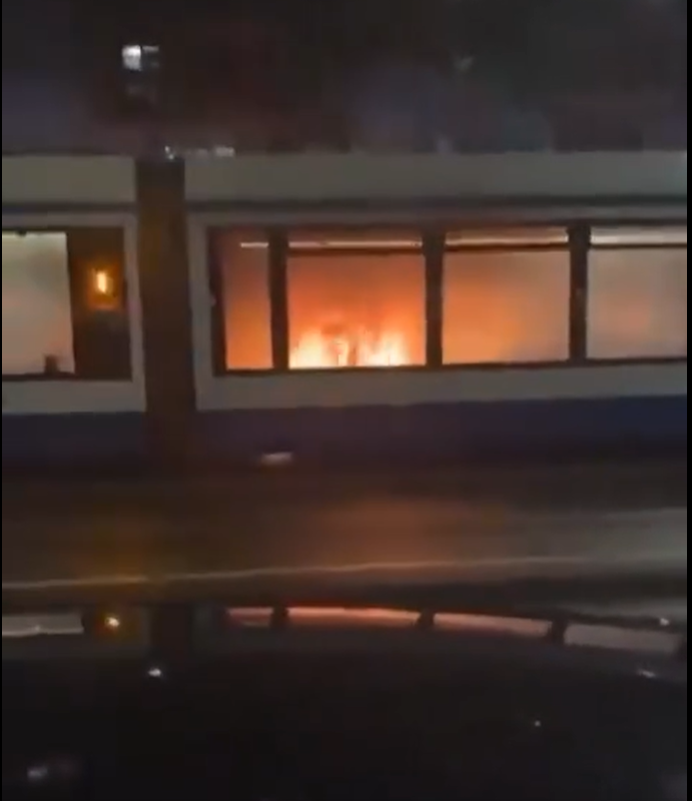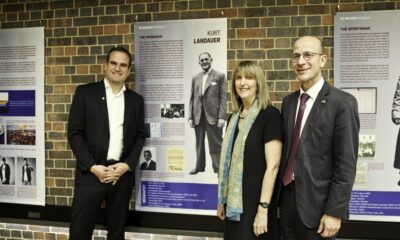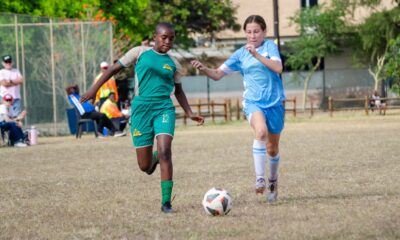
News

SA expats strong after Amsterdam pogrom
“As Jews, we don’t feel safe in Amsterdam and Europe. We already hide our Jewish symbols, and many of us are thinking about moving somewhere safer for Jews,” a Jewish South African expat living in Amsterdam told the SA Jewish Report on 8 November, the morning after Israelis were brutally attacked on the streets of Amsterdam. She asked not to be identified, fearing for her safety in the aftermath of what experts and world leaders have described as a pogrom.
The violence occurred in the aftermath of a Europa League match between local team Ajax and Israel’s Maccabi Tel Aviv. The day before the match, Israeli fans reportedly chanted provocative anti-Palestinian slogans and tore down a Palestinian flag. After the match, on the night of 7 November, there were numerous attacks on Maccabi supporters. Footage showed masked men seeking out, chasing down, and beating Maccabi fans and others whom they suspected were Jews.
Witness accounts and screenshots show that the attacks were a pre-planned “Jew hunt”. Fans were targeted, and asked if they were Jewish or to show their passports. The attacks sparked further unrest a few days later, as hooligans set an empty tram on fire on 11 November. A partial state of emergency was declared in Amsterdam and the surrounding area, giving police the right to carry out stop-and-search operations. Extra police were drafted, security stepped up at Jewish buildings, and protests banned.
“When I heard that Israel was sending rescue planes on Friday, I was lost for words,” says Andy Golding-Dickinson who, like all the South African Jewish expats who spoke to the SA Jewish Report, lives in Amsterdam.
“I grew up knowing that when Israel sends planes to come get you, you ask no questions, you just go. When I heard that was happening here, it felt like the bottom dropped out of my world for a few moments. This incident will make me think twice about wearing a Magen David or placing a mezuzah on my door. I wonder if I will ever again feel comfortable to do those things without a second thought,” Golding-Dickinson says.
“Since 7 October, I’ve felt increased concern for my safety, and these events have only heightened that feeling,” says Ava Levi*. “Living here has brought reminders of the Holocaust into sharper focus. I’m deeply proud of my Jewish heritage, and want to show more visible support for Israel and Judaism, but right now, I don’t feel secure enough to do so.”
Tanya Kovarsky says though her children went to school on 8 November, “more security was put in place by the Dutch military and security personnel. I was sad and horrified by the attacks. What struck me was the Amsterdam Jewish community rallying to help any Israelis in need – whether by offering their homes for safety, lifts out of problematic areas, or mobilising assistance to where it was needed.”
Golding-Dickinson woke up on the morning of 8 November to messages and calls from family and friends all over the world.
“Ever since 7 October, I’ve been more cautious about my safety and conscious about ‘public Judaism’,” she says. “The extreme protest action and outpouring of misplaced hate that we have seen in Amsterdam and other places really breaks my heart.”
Golding-Dickinson says she feels fortunate “to live in a very Jewish area”. Though she’s not observant, “on Shabbat morning, I walked past the shul because I wanted to see if there was more security than usual. I saw a father and his sons going to shul, but in place of kippot they wore caps, and their tallis bags were inside conventional shopping bags. This scene hurt me – the fact that they felt the need to conceal their Judaism. My grandparents and great-grandparents lived through this, must we now do so too?
“As a Jew who is a descendant of Holocaust survivors, living in Europe and particularly in Amsterdam, where two-thirds of the Jewish population was wiped out, it feels important to be here and to practice Judaism here, so the aftermath of Thursday’s pogrom was extremely saddening,” she says. “I greeted the father and sons with a warm ‘Shabbat Shalom!’ and their smiling response reminded me why I love being a Jew and being part of this community.”
The pogrom “reminded me that there’s so much misplaced hate around me”, says Golding-Dickinson. “It has definitely made me wary of large groups of the population here, and extremely wary of ride-share apps and their drivers,” she says, in light of revelations that drivers played an active role in the pogrom.
“There was a strong response from the government after the attacks, so I don’t think there’s any ongoing risk to anyone. We all hope that they can protect us and ensure that those responsible are held accountable,” Kovarsky says. “My perspective hasn’t changed because of these events. I know that just like in many places, antisemitism exists here. What makes me positive is the strong sense of camaraderie within the Jewish community. There has also been a strong reaction from other communities against the attacks, which is heartening.”
Levi says when she moved to Amsterdam, “I was cautious about being open about my Jewish identity. For example, while it’s typical here to display your full name on your front door, I chose to use only my initials, concerned that my Jewish surname might make me a target. After recent events, I’m even more grateful for that decision.
Following 7 October, Levi adjusted her Uber profile to avoid disclosing her surname, “fearing the potential of encountering someone who might wish to harm me solely because I’m Jewish. The other day, I wore a chai necklace to work, and a Jewish colleague jokingly commented that it was a ‘brave choice’. Though we laughed to lighten the mood, it struck us both how wearing a visible symbol of our Jewish identity can feel like an act of defiance.
“From what I’ve read, it seems that pro-Palestinian groups sought permission to protest outside the soccer stadium, but the Amsterdam authorities denied the request,” says Levi. “That gives me some hope that the city is aware of the potential for unrest and is prepared to intervene to prevent violence when possible. I trust there will be significant consequences for those involved, and I hope for further preventative measures to help keep our city safe.
“Amsterdam has always felt like an open, welcoming city, where people are naturally polite and trusting,” she says. “It’s disheartening to see tensions like these disrupt that sense of community. My Jewish friends and I rely on each other greatly during this time. Some are feeling the impact more than others, but for all of us, it’s a deeply stressful period. I’m grateful to have this circle of support.”
After the tram attack, Golding-Dickinson said, “With levels of vandalism and rage like this, my hope is that it lights a ‘proverbial fire’ under the Dutch government to take strong action.”
“While these are undeniably challenging times for the Jewish community, they also offer us a profound opportunity,” Levi says. “We can choose to respond with grace and accountability, engaging in thoughtful dialogue rather than fuelling unnecessary division. With the world’s eyes on us, we have a chance to set a powerful example, one that reinforces our community’s resilience and unity, creating a legacy of strength for generations to come.”
*Not real name











Gary
November 21, 2024 at 11:22 am
If the blessed Geert Wilders had got in as PM we would be seeing none of this and Jews would be safe from the evil Islamists and Neo-Marxists